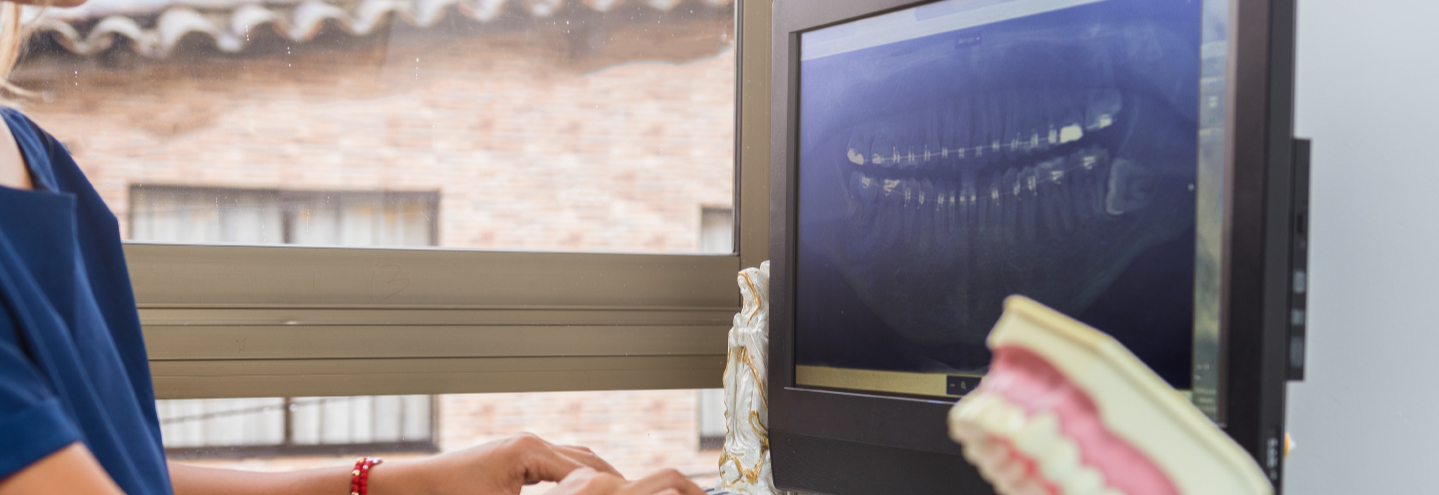
Dental Implants FAQ
Dental Implants FAQ
What are dental implants?
A dental implant is not a tooth; instead, it is a prosthesis used to replace missing teeth. It has the highest satisfaction rate for natural tooth replacement and it’s the best long-term replacement solution to your natural teeth. In its basic form, it is a small titanium post/fixture that is inserted into the jawbone, on top of which a single crown or (cap), a fixed bridge, a partial denture, or even a full denture can be attached. Once the implant integrates into your bone, the artificial tooth or teeth are attached.
Are you a good candidate for dental implants?
Anyone missing a tooth, multiple teeth, or even all teeth are eligible for dental implants. Talk to one of our Celebrate expert dentists or prosthodontists about your specific smile needs.
What are the advantages of dental implants?
We are all have two sets of teeth, our baby teeth, and our adult–permanent teeth. When a single permanent tooth or multiple teeth are lost due to dental decay or gum disease, dental implants can now replace them as the 3rd set of fixed teeth. Dental implants are made of titanium and can never get dental decay. They can last a lifetime and can improve your appearance, your confidence, the ability to eat the foods you love, and participate in an active lifestyle–without worrying about your teeth.
Do dental implants last?
Unlike your natural teeth, dental implants are not susceptible to dental diseases such as decay. The health of the gums is vital to maintaining lasting implant success. Everybody is different, and success relies upon diagnosis, planning, medical history, and a variety of other factors. Thorough care by the patient and regular professional check-ups and cleanings are essential for dental implant sustainability.
Dental implants are purposed to be a permanent solution to your missing teeth. Because the implants are anchored into your bone, dentists consider implants to be the most effective and stable long-term tooth replacement option.
You can expect your titanium implant to last a lifetime. Good care contributes to the longevity of your dental implants. Crowns, bridges or dentures may need to be replaced after 10 to 15 years.
Can dentures be made into implants?
Yes. Certain dentures can be retrofitted into an Implant supported denture also known as an overdenture. Implants are metal screws placed into the jawbone to help anchor and support artificial teeth (dentures). It may however, be possible to have implants placed beneath existing dentures to aid in the stabilization and support of those dentures. This could only be done if the current dentures were in excellent condition. You should consult with one of our expert prosthodontists to have your existing dentures carefully examined.
Implants cost, finance, and insurance
How much do implants cost, and does insurance cover the cost?
The cost of replacing a tooth with a dental implant is almost the same as replacing it with a traditional fixed bridge. The cost will vary by patient needs, bone condition, and region. Dental implant treatment may qualify for some insurance coverage, but situations vary. One of our expert prosthodontists experts will make an assessment based on your unique needs.
This all depends on your specific situation. Once our expert team helps you learn more about your specific needs, to give you an accurate assessment of the costs of your procedure.
Here are some factors that will determine the cost of your dental implant treatment:
- The amount, quality, and location of bone
- The number of dental implants you’ll need to support the teeth
- The number of teeth that need replacing
- The type of artificial teeth the dentist will use
- The types of dental implants used
This is something you can discuss with our expert team during your initial consultation.
Implants procedure
How long does a dental implant procedure take?
A few factors determine the dental implant procedure timeline.
- Your dental health
- Which teeth are replaced
- The number of teeth involved
- If you’ll require a bone graft before the implant placement
- If you’ll require a tooth extraction before the implant placement
The dentist restores your mouth with an implant in two phases, and the entire process can take as little as three months.
Does the dental implant procedure hurt?
Most implant procedures are less uncomfortable than your typical tooth extraction. Celebrate Dental & Braces have expert staff and dentists trained to safely provide conventional anesthesia methods along with other intravenous sedation anesthesia choices to help keep you safe and comfortable.
What is the success rate of dental implants?
It varies on individuals and their health and habits. For a healthy person with good oral hygiene health, implants are predictably successful with reported success rates above 90-95%.
What is a full fixed arch mouth replacement treatment?
Full fixed arch is a restoration involving the replacement of all missing teeth in one jaw by using implants. This procedure is especially advantageous to those who have lost a lot of bone in the back of the mouth and is a stable solution that can last a lifetime. Speak to your Celebrate clinician for your personalized treatment plan.
Are dental implants removable like dentures, or do they stay in your mouth?
Unlike dentures, dental implants are fixed solidly in the bone and allow teeth to be replaced in a way that is closest to your natural teeth.
What can you not do after dental implant surgery?
You shouldn’t smoke or chew tobacco. Both cause gum disease and recession, which makes the dental implant structure weak over time.
Don’t apply any heat to your face unless otherwise instructed to by your dentist. Heat may increase swelling.
Stay away from using straws, blowing up balloons and other activities with forced air as doing so places pressure on your mouth that may dislodge the blood clot that’s keeping the wound closed, cause more bleeding, and delay healing.
Care and maintenance
How do you care for dental implants?
Follow these steps to keep your dental implants clean and hygienic:
- Brushing and cleaning them twice per day. Make sure to use a soft-bristle toothbrush
- Focus on and around the crown to ensure you’re getting all the spaces where plaque can form
- If you have denture-supported implants, make sure you remove and clean them at night
- If your dentist recommends it, try using a toothpaste designed to be less abrasive
- Use unwaxed floss or a product your dentist recommends
- Consider using a water flosser that has high-pressure streams of water to help remove plaque, bacteria and debris
- Visit your dentist for routine check-ups and cleanings
Our Doctors’ Affiliations




